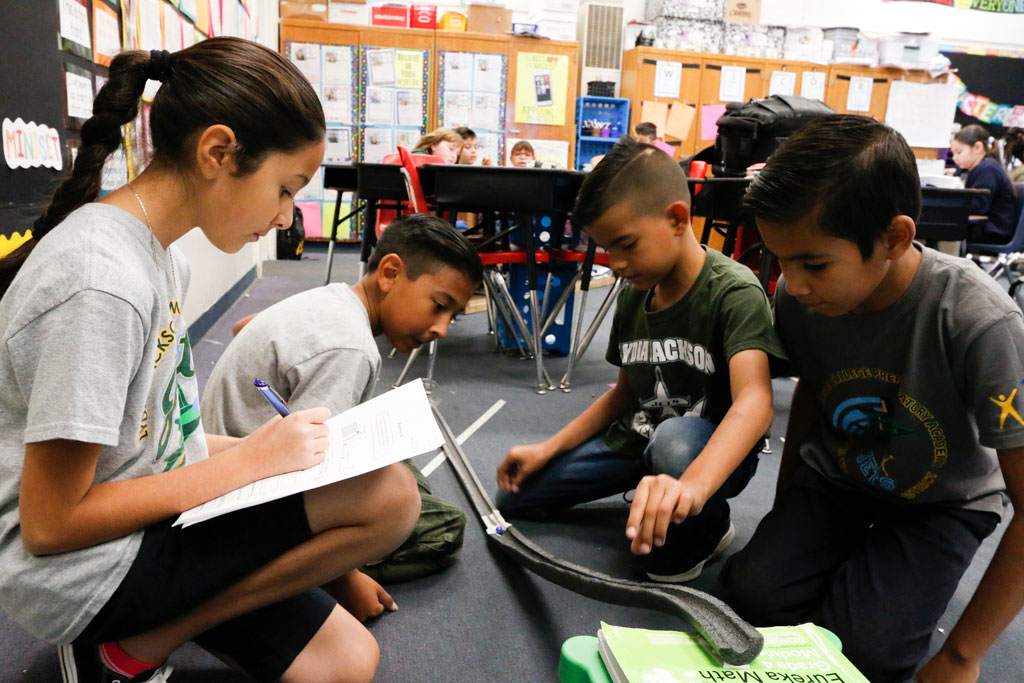Hispanic Heritage Month is recognized nationwide from Sept. 15–Oct. 15 as a time to honor the cultures and contributions of Hispanic and Latino Americans. Gov. Gavin Newsom, in a proclamation issued on Sept. 15, 2020, recognized Latino Heritage Month to honor and recognize the contributions of this diverse group.
Serving 98 percent Latino students and keenly aware of the statistics of the relatively low rates of Latinos entering and completing college, Lydia Jackson College Preparatory Academy has shifted the narrative and flipped student, family and community expectations. As early as transitional kindergarten, classrooms in every grade adopt the name of a university, and students learn about its campus, courses and even the college cheer.
The Whitter City School District elementary site was once one of the area’s lowest-performing schools; now students at the school identify themselves as college-bound, said school board President Cecilia Perez. The turnaround earned a prestigious 2019 Golden Bell Award from CSBA. “Our staff is committed to instill the importance of pursuing higher education to the students because they are aware of the statistics that reflect the school community,” Perez said. “The idea that students are college-bound is a given, it is not questioned, and that is where the confidence begins.”
The school implemented the AVID College and Career Readiness Program, which incorporates a system of support, teacher training and a cycle of continuous improvement. Lydia Jackson moved very quickly from being a beginner AVID school to a certified school, and is now one of only nine schools in California to be named a Showcase School as a model of the College and Career Readiness Program.
Principal Maria Ruiz said the approach empowers students, promotes self-advocacy and develops academic habits while nurturing important soft skills such as time management, collaboration, problem-solving and interpersonal communication. She said the result is the closing of achievement gaps at the elementary, where 40 percent of students are English learners and 89 percent of students receive free and reduced-price lunch.
“Our family members and students are now eager to step up to discuss their success with visitors from across Southern California every year. The AVID Showcase visits offer a special opportunity for the entire school community to open its doors, to stand tall and proud for closing the achievement gaps and improving results for students,” Perez said. “This has given the school a strong, positive identity that is centered around academic success.”
Beyond a focus on successful careers and a college education, the push for and recognition of the importance of a more culturally inclusive and relevant curriculum in the state’s K-12 schools also serves as an important backdrop for leaders both at the school and across the district, Perez said.
“It is imperative to look at the strengths of the Latino community so that our students feel respected and valued. Our students need to learn the richness of their culture and the contributions that Latinos have made to society and civilization as a whole,” Perez said. “We need to ensure that we include the contributions of Latinos not only one month a year but throughout the school year. Our educators need to be equally informed of these contributions so that they can teach all students.”
“Additionally, our teachers need to identify role models outside and within our community that our students can look up to,” she said. “We need to honor what each student brings to the school community, every child, every family has a story to tell.”





